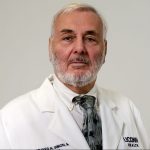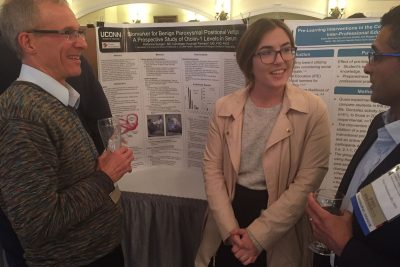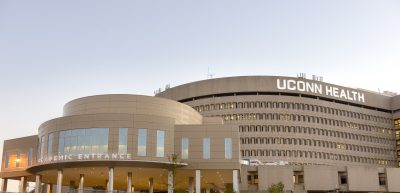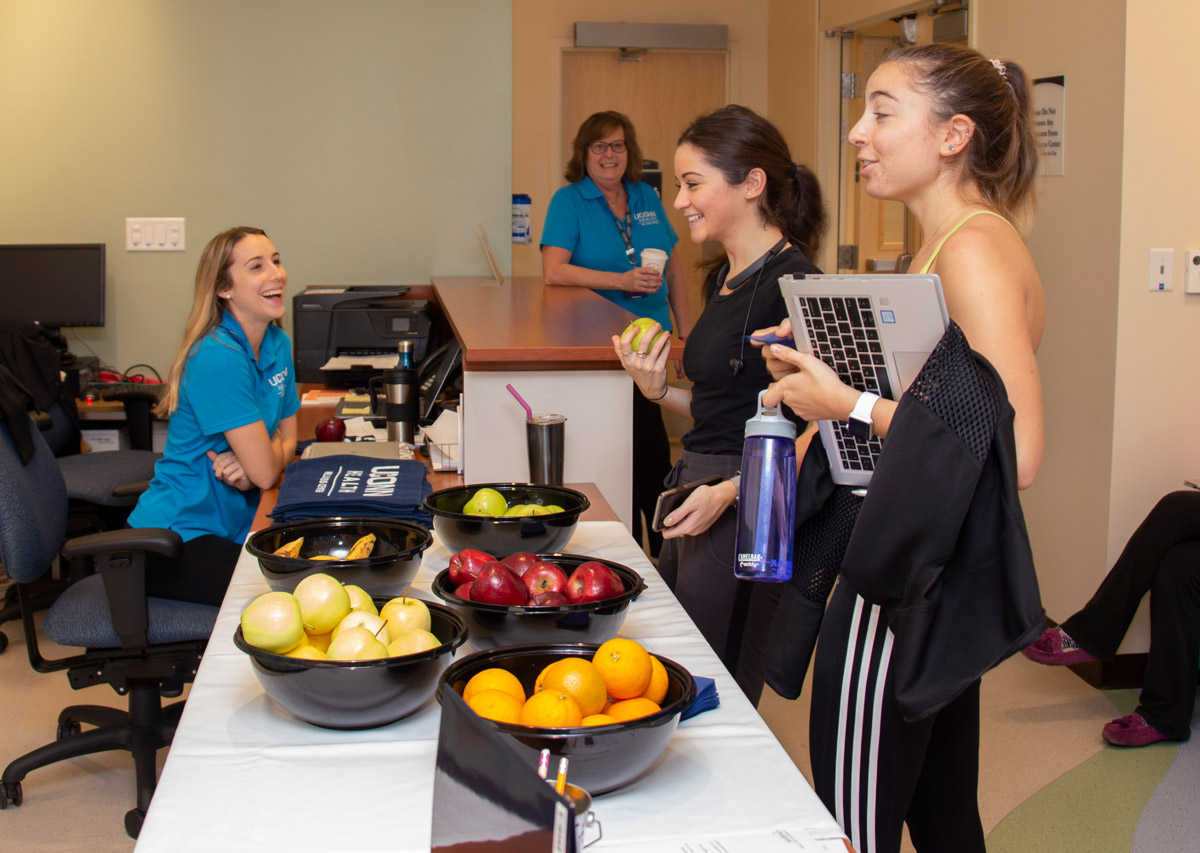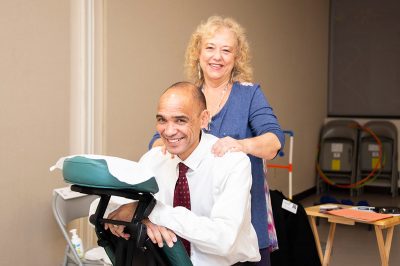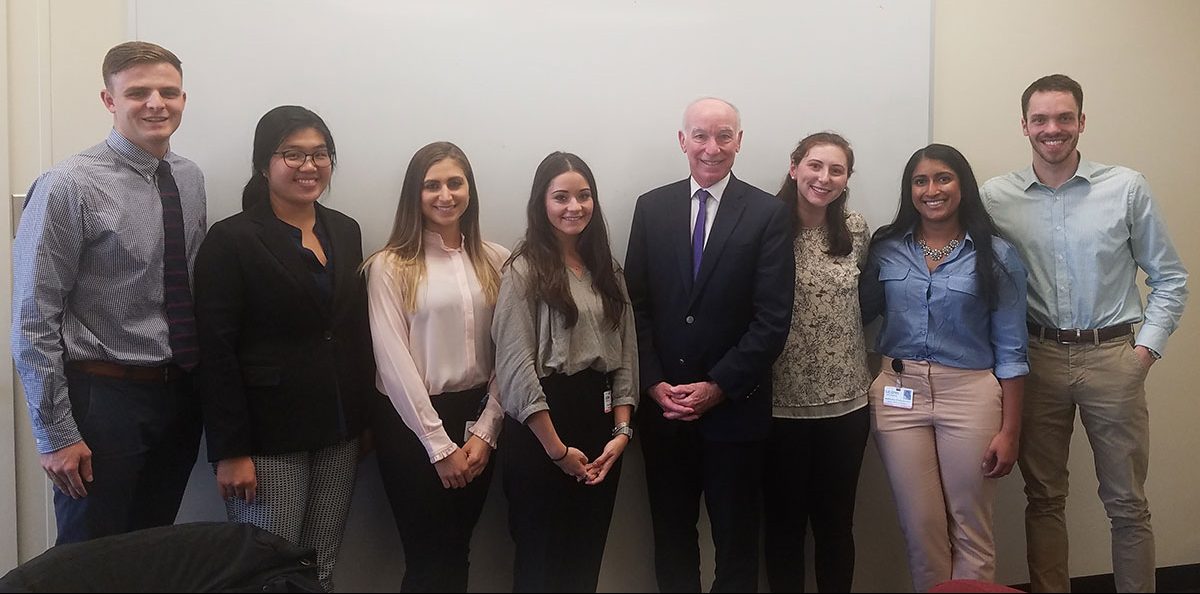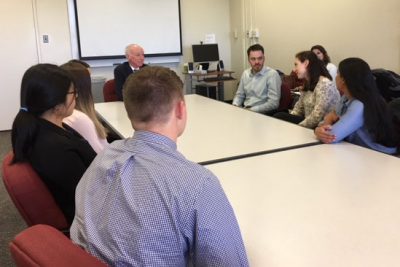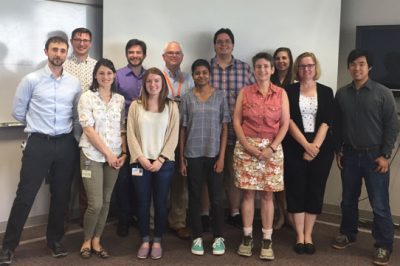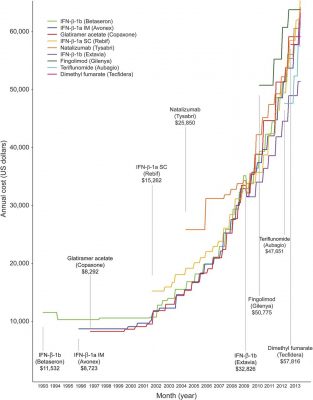“I now understand they are an absolute integral part of the health care team, and a truly amazing resource.”
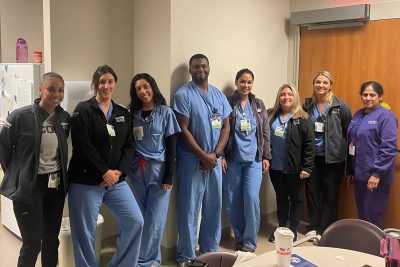
As UConn Health observes Respiratory Care Week, Oct. 23-29, here is a testimonial from a medical student that was part of a recent written assignment. Students were asked to reflect on their observations of the respiratory therapists’ experience, including the RTs’ interactions with the health care team and the patients’ experiences.
My main takeaway is respiratory therapists are really amazing health professions that I have never really considered until now.
I had always heard about “RTs” during the COVID pandemic especially, but I never thought about what that might entail. I thought that respiratory management was always managed between the pulmonologist and nurses, such that orders for oxygen and/or breathing apparatuses by the pulmonologist were implemented by the nursing team, and more advanced ventilation such as intubation and tracheostomies were performed by the pulmonologists.
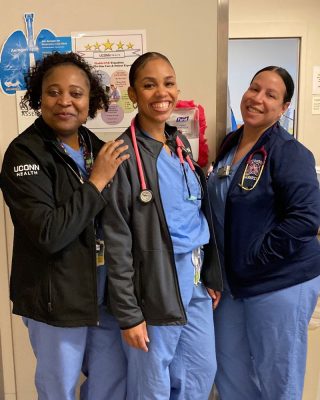
I was blown away by how much our RT does… She shared a story of when a patient came in and with her 15-plus years of experience, immediately knew that this patient needed a BIPAP. However, the resident said it was not needed yet. Rather than argue, the RT simply went to grab and set the BIPAP up, but did not place it. Finally, when the resident said BIPAP was necessary, it was all ready to go. The RT shared that had she waited for the resident’s orders for the BIPAP, there would have been a delay in care because of the time it takes to get the BIPAP from the floor and set it up. I thought this was such an incredible story to hear, because it showed me that even though doctors technically go to school for a longer period of time, we need to respect these professionals that have extensive experience in the field and have trained specifically to help patients breathe. Our RT was sharing about all of the intricacies of O2 and CO2 balance, with extensive knowledge about microbes such as pseudomonas that cause respiratory infections.
In our curriculum, we have pretty much covered all of the material surrounding respiratory infections and V/Q mismatch and gradients and things like that, and I still feel like I barely know these things – and a lot of my classmates struggle with this material as well. I just think it’s absolutely amazing how RTs know pulmonary inside and out. Like I genuinely don’t understand what pulmonologists do that RTs don’t. I know it was very condescending of me to not know how knowledgeable RTs were before, but I am fortunate to have had the experience to learn.
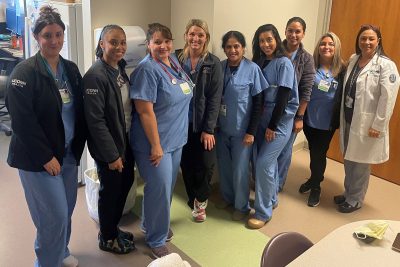
Another take away was that RTs are super passionate, caring, hard-working health professionals. People who require respiratory therapy are extremely sick, and it requires extreme care and empathy to be able to take care of patients in such acute condition. Our RT was telling us about how much they worked during the pandemic and would not leave the floor for insane periods of time. She told us about how they all stayed over time every single day. She even talked about how she needed to buy nice sneakers because of how much they run around. And above all, despite working so much, she still was so passionate about what she does, even saying she will stay late and set extra things up because she loves seeing the relief of patients when they are finally able to breathe.
Overall, I never really thought about RTs, but I now understand they are an absolute integral part of the health care team, and a truly amazing resource. The way in which you breathe really guides how anxious/distressed you might feel, and as RTs are solely focused on making sure patients can breathe comfortably, they are truly at the center of patient care.
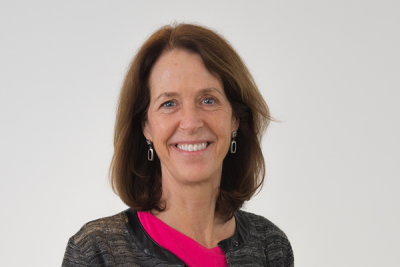
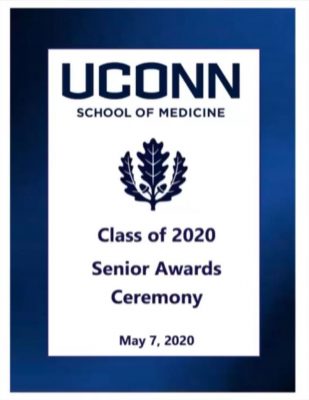 The UConn School of Medicine Class of 2020 senior awards ceremony
The UConn School of Medicine Class of 2020 senior awards ceremony 